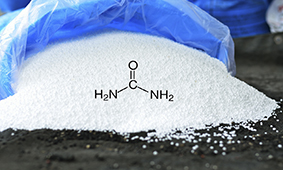
Bolivia halts urea plant on additive deficit: Update

The government is taking advantage of the downtime to carry out plant maintenance, he said.
"We hope to resolve the problems by the middle of next month, and are working on acquiring the production additive," Pino added.
He said the government is also using the maintenance period to re-evaluate how production is used and review export agreements to prioritize the domestic market. The plant, which has run intermittently since its launch in 2017, is located in Bulo Bulo in the central department of Cochabamba.
"The previous administration made decisions based on politics, which hurt the industry. We have stopped that," said Pino, referring to the former government of Evo Morales.
The urea plant, which runs on 1.4mn m3/d of Bolivian natural gas, was knocked off line last year during protests after Morales won a controversial fourth term in October. The elections were deemed fraudulent by international observers, sparking the protests that led to Morales' November resignation and current exile in Argentina following a stint in Mexico. Morales was replaced by conservative caretaker president Janine Anez. Bolivia will hold new elections on 3 May.
Gas supply to the urea plant was restored in December, but operations were suspended again in early January on the formaldehyde deficit.
The Morales government had planned to build a formaldehyde plant, but an initial tender for the plant contract was cancelled. Another project to build a methane plant never took off either. The projects were part of the previous government's push to develop more industries to take advantage of Bolivia's gas, most of which is currently exported via pipelines to Brazil and Argentina.
Pino said the government is now working on a twin strategy of acquiring formaldehyde and redesigning the project to produce it.
The hydrocarbons ministry has also started reviewing contracts, domestic demand and price structures ahead of the plant's expected restart next month.
"We need to decide which contracts should be maintained, how we can best prioritize the local market and study prices with respect to the competition," he said.
The principal export market is Brazil. Bolivia signed a deal in January 2018 with Keytrade, a Swiss trading company, to broker 335,000t of urea supply to Brazil. That contract will be evaluated.
In addition, the Bolivian government has to decide if it will pursue an agreement, currently on standby, with Russian fertilizer giant Acron to distribute Bolivian urea overseas. The deal had also called for Bolivia to provide Acron with 2.2mn m3/d of gas for a urea plant in Brazil's Mato Grosso do Sul state.
Cuba barter deal cut
Pino confirmed that the first contract to be terminated is with Cuban state-owned Quimimport, because the contract price was below market value. The agreement, which was signed by the Morales government in May 2019, involved a small volume of urea and was part of a larger barter package that included Bolivian exports of beef, poultry and powdered milk to the island.
Cuba and Venezuela were the closest political allies of Morales, who ruled Bolivia for almost 14 years. In a controversial step today, the Anez government broke diplomatic relations with the Cuban government, which it accuses of attacking its democratic process. Havana is among the nations that contend that Morales was the victim of a coup.
Pino said the urea that would have been sold to Cuba at a discount could now be used to stimulate Bolivia's agriculture production, especially soybeans, the country's principal farm product.
According to Bolivia's foreign trade institute (IBCE), Bolivia exported about 290,000t of urea in January-November 2019, mostly to Brazil and Argentina, with smaller shipments to Paraguay, Peru, Uruguay and Cuba.
The Anez government recently eliminated export controls on soybeans and other oilseed crops. Bolivia exported 1.7m t of soybeans in the first three quarters of 2019.
By Lucien Chauvin


Trump weighs using $2 billion in CHIPS Act funding for critical minerals

Codelco cuts 2025 copper forecast after El Teniente mine collapse

Electra converts debt, launches $30M raise to jumpstart stalled cobalt refinery

Abcourt readies Sleeping Giant mill to pour first gold since 2014

Barrick’s Reko Diq in line for $410M ADB backing

Nevada army depot to serve as base for first US strategic minerals stockpile

Tailings could meet much of US critical mineral demand – study

Viridis unveils 200Mt initial reserve for Brazil rare earth project

SQM boosts lithium supply plans as prices flick higher

Energy Fuels soars on Vulcan Elements partnership

Northern Dynasty sticks to proposal in battle to lift Pebble mine veto

Giustra-backed mining firm teams up with informal miners in Colombia

Critical Metals signs agreement to supply rare earth to US government-funded facility

China extends rare earth controls to imported material

Galan Lithium proceeds with $13M financing for Argentina project

Silver price touches $39 as market weighs rate cut outlook

First Quantum drops plan to sell stakes in Zambia copper mines

Ivanhoe advances Kamoa dewatering plan, plans forecasts

Texas factory gives Chinese copper firm an edge in tariff war

Energy Fuels soars on Vulcan Elements partnership

Northern Dynasty sticks to proposal in battle to lift Pebble mine veto

Giustra-backed mining firm teams up with informal miners in Colombia

Critical Metals signs agreement to supply rare earth to US government-funded facility

China extends rare earth controls to imported material

Galan Lithium proceeds with $13M financing for Argentina project

Silver price touches $39 as market weighs rate cut outlook

First Quantum drops plan to sell stakes in Zambia copper mines

Ivanhoe advances Kamoa dewatering plan, plans forecasts

















